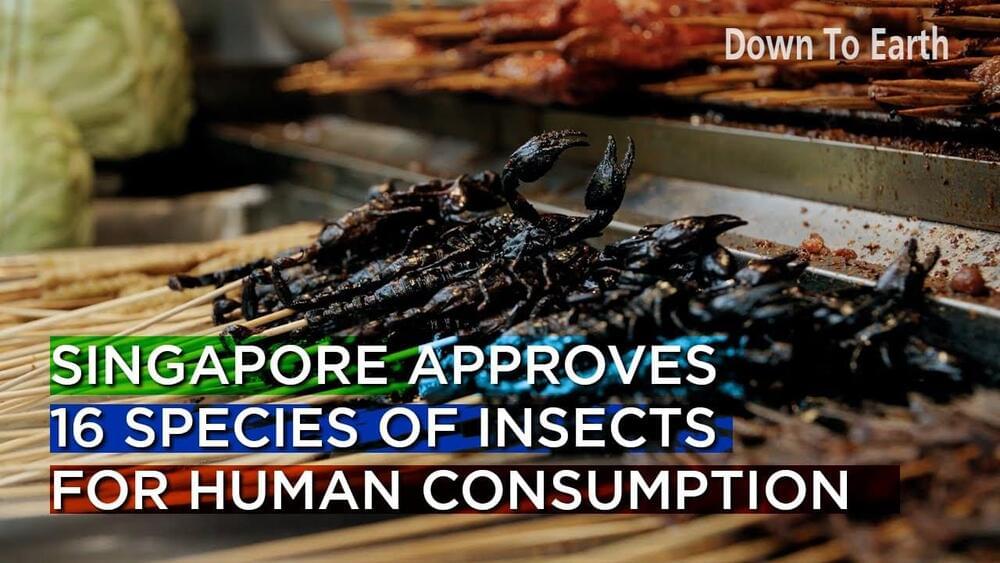Future food.
Think about grasshopper fries, a protein bar made of crickets or silkworm cocoons. As unconventional as it may sound, Singapore is trying to make insect food mainstream. The Singapore Food Agency (SFA) has given approval to 16 species of insects, such as crickets, silkworms and grasshoppers for human consumption.
The latest news, reported by the Singapore newspaper The Straits Times notes that the approval of the insects for consumption will be subject to food safety requirements. This will include treatment processes to kill pathogens and proper packaging and storage facilities.
The United Nations Food and Agriculture Organisation (FAO) has been promoting insects for human consumption recently. Insects are known for their high protein content and Singapore’s latest interest in adding insects to the national food menu is seen as a way for the country to safeguard its national food security. As per The Strait Times newspaper, the SFA had also conducted a scientific review to analyse the benefits of directly eating specific insects or making them into items such as snacks for human consumption. The Singapore government also held a public consultation exercise on the regulation of insects and insect products before the SFA approval.
Besides insects, SFA said it will also permit the cocoons of silkworms for human consumption in Singapore. They are also consumed in China and Malaysia, among other places. Silkworms produce cocoons with silk threads that are composed of two main proteins, known as sericin and fibroin. While silk has traditionally been used to produce textiles, countries like Japan have allowed companies to turn these silk threads into food and edible coatings in recent years. With the new announcement, the Singapore food industry is trying to capitalise on the opportunity to launch snacks and protein bars made of insects. Several home-grown firms also produce cricket powder for use in flour and cookies and are currently selling it to customers in the US and the UK. But the scale of consumer demand and the lack of public awareness is seen as challenges down the road. With a growing population, the world needs more available, affordable and sustainable alternatives for a balanced diet. However, a lot more needs to be done to normalise insect consumption around the world.
